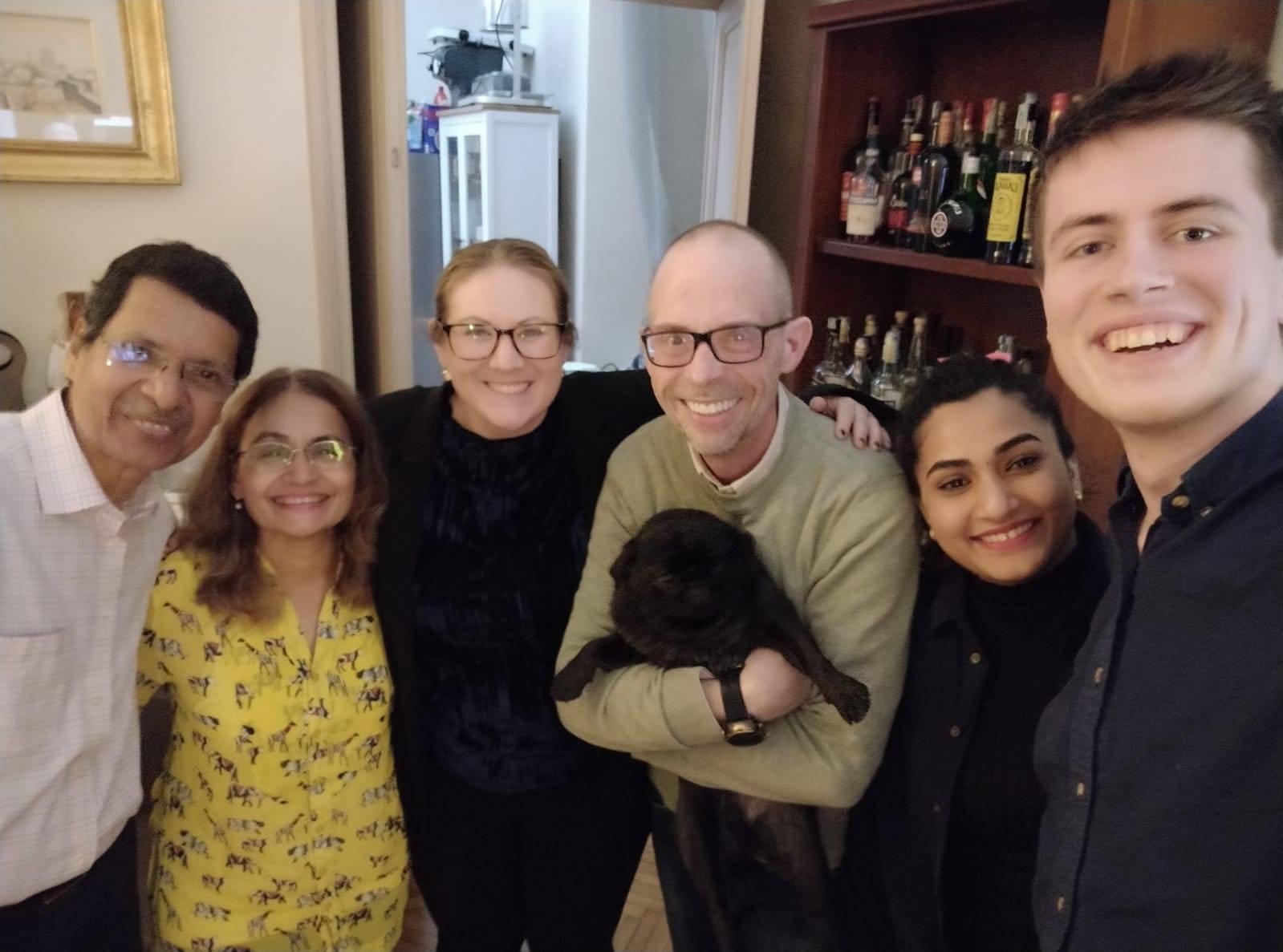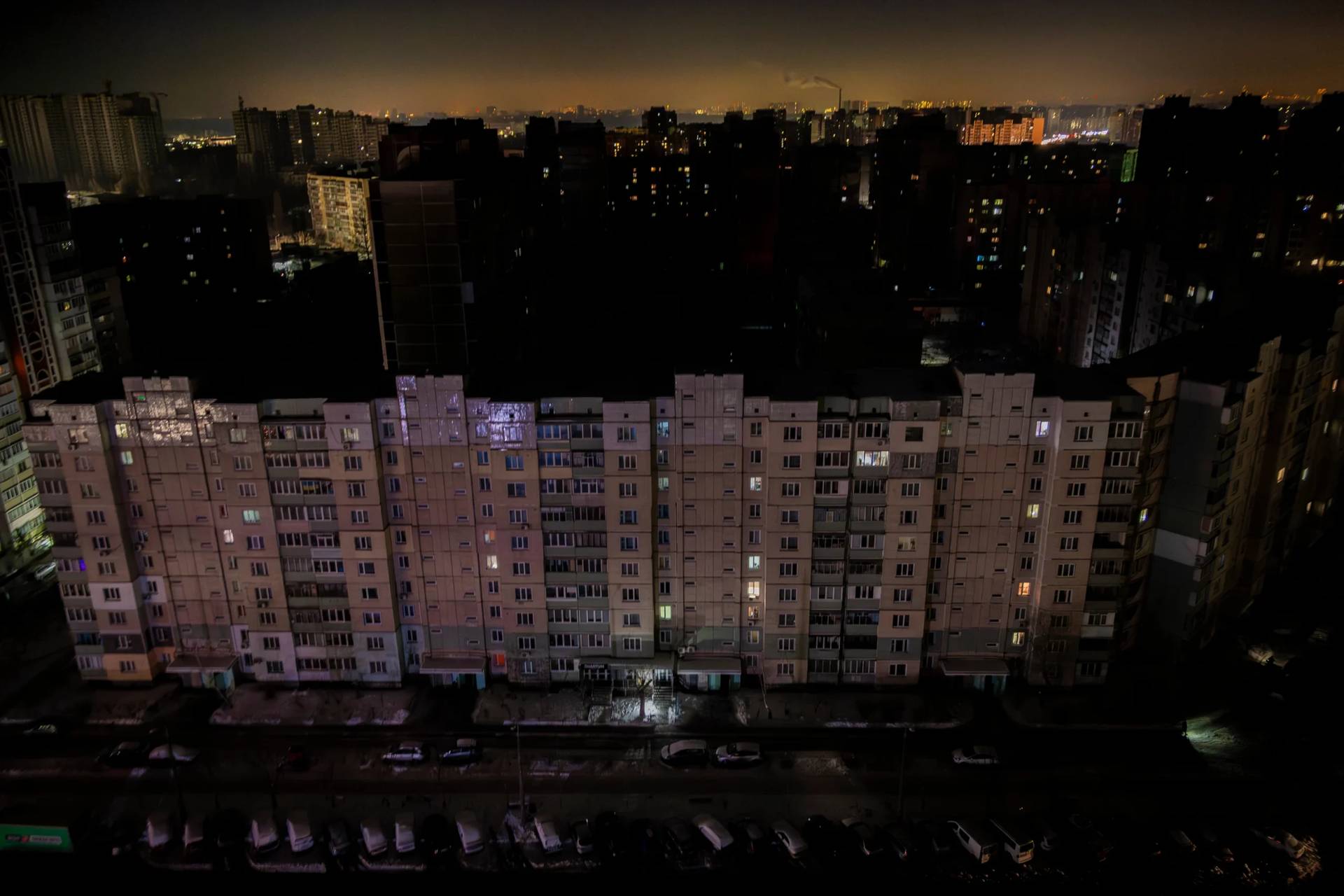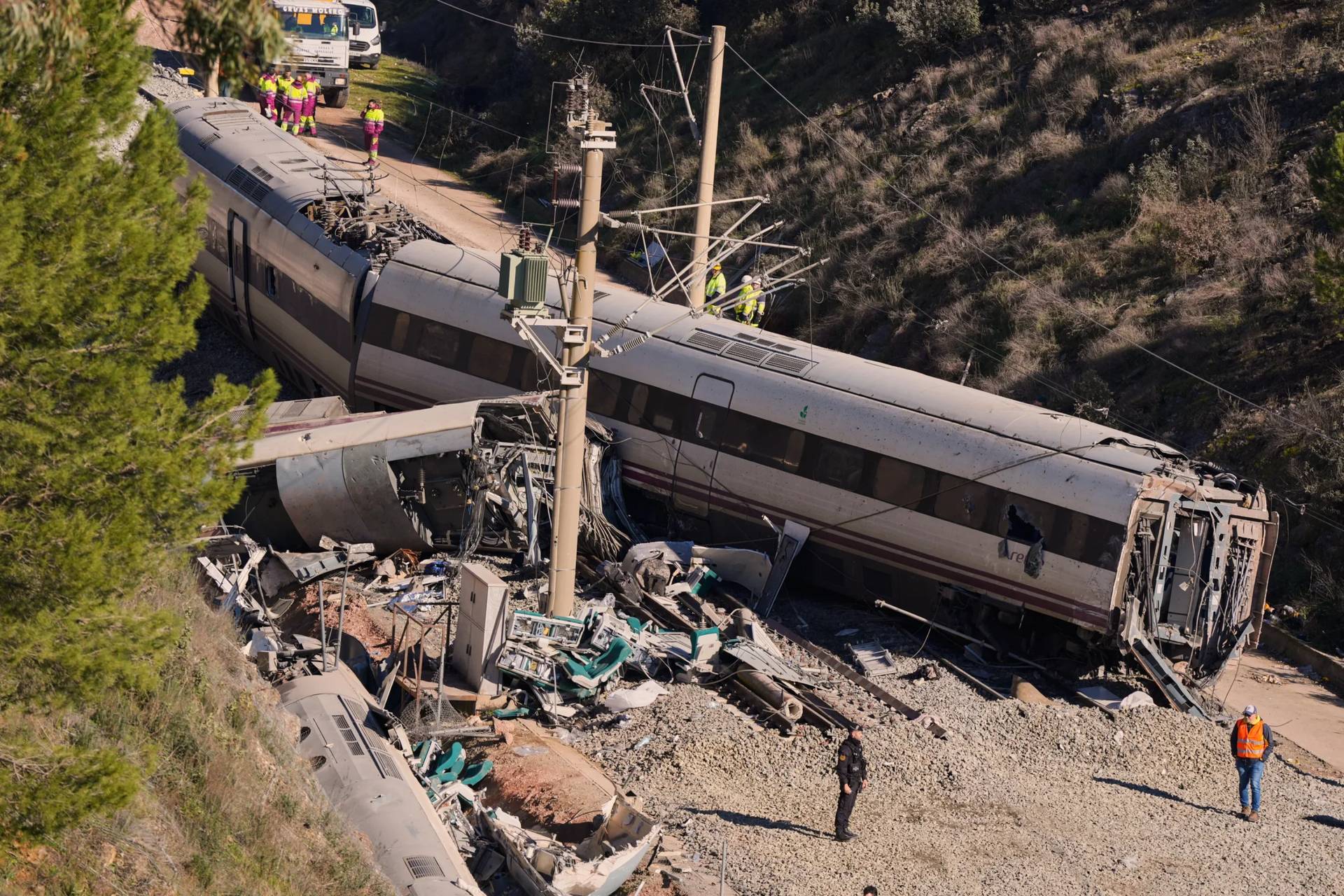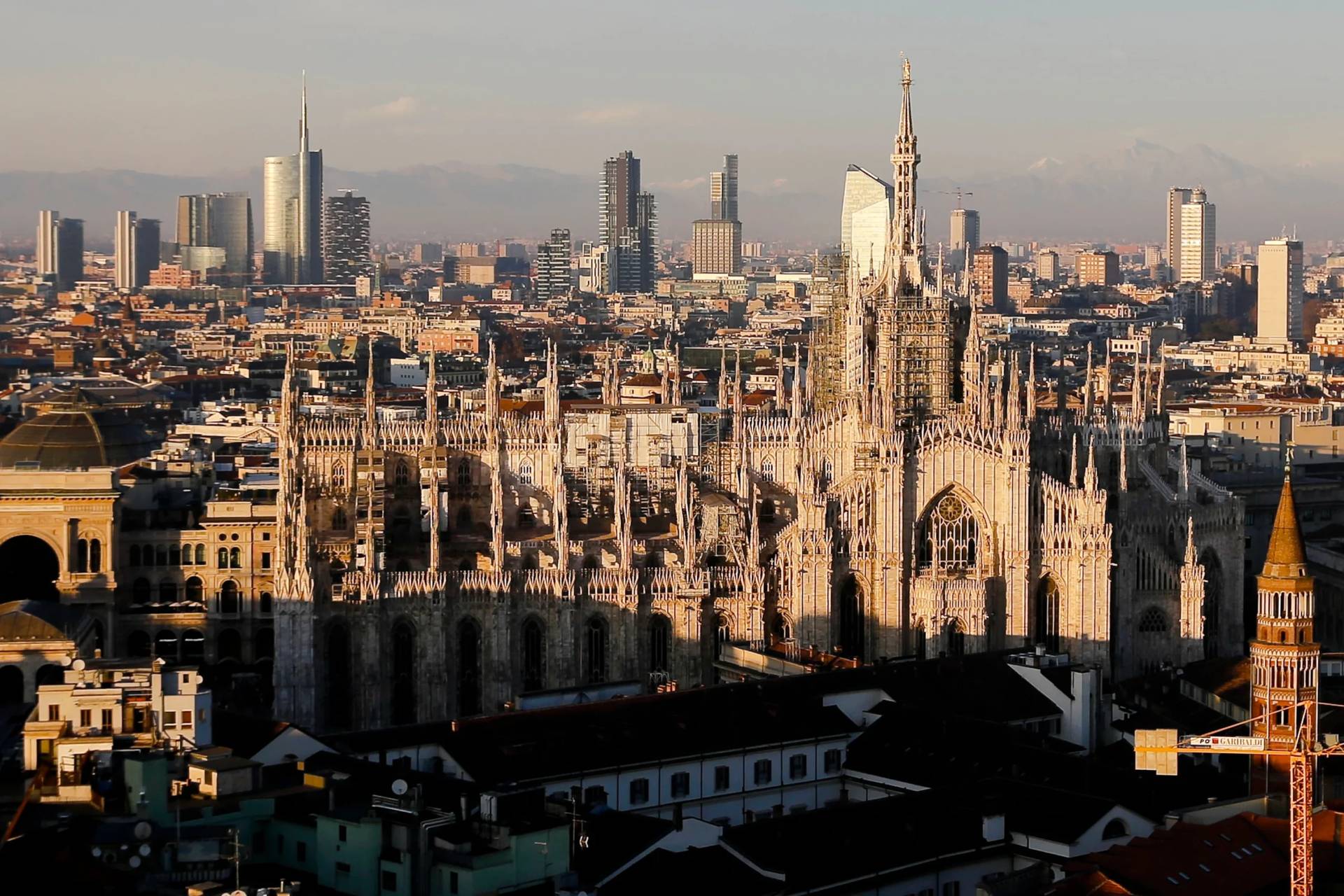NICOSIA – After landing in Cyprus for a 5-day trip that will also take him to Greece, Pope Francis met with local bishops and religious, urging them to be patient and welcoming with the many migrants who arrive on their shores.
“Walls do not and should not exist in the Catholic Church. For the Church is a common home, a place of relationships and of coexistence in diversity,” the pope said in his Dec. 2 speech, the first of his trip.
Pope Francis arrived in Cyprus Thursday, and was greeted at the airport by civil authorities, as well as a group of children holding Lebanese flags and chanting in English, “Pope Francis, welcome to Cyprus! Pope Francis, we love you! Pope Francis, pray for Lebanon!”
He then traveled to the Cypriot capital of Nicosia, where he will stay until Saturday, when he’ll head to Greece for a 2-day visit, returning to Rome Monday morning.
While ecumenism will be a prominent theme throughout the pope’s trip, the issue of migration is front and center, as Cyprus and Greece have long been on the frontlines of Europe’s migration crisis.
Cyprus, divided since 1974 between the Turkish north and the Greek Cypriot south, whose government is the only one recognized by the international community, is a main point of entry for migrants and refugees seeking asylum in Europe, many of whom enter through Turkey.
With thousands of pending asylum requests and roughly 1,000 more applications coming in per week, Cyprus has taken steps in recent months to slow down the influx of newcomers, including an increase in so-called “pushbacks” of migrant boats seeking to dock and a formal government request to cease accepting new asylum requests altogether.
RELATED: Pope could face challenges on migrant agenda in Cyprus
In his speech to Cyprus’s bishops, priests, religious, seminarians, and catechists, Pope Francis pointed to Cyprus’s diverse cultural background, and gave a shout-out to the island’s two main Catholic communities, who belong to the Maronite and Latin rites.
Although Cyprus is a majority Christian country, the bulk of the island’s Christians belong to the Orthodox church, with Catholics comprising roughly three percent of the island’s Christian population.
Speaking specifically to members of the Maronite Church, which has its roots in Lebanon, the pope referenced the civil and economic crisis unraveling in the country, saying, he is “sensitive to the sufferings of a people wearied and tested by violence and adversity.”
“I carry in my prayer the desire for peace that rises from the heart of that country,” telling Maronites that they are roots which have been “transplanted to Cyprus in order to spread the fragrance and beauty of the Gospel.”
Pope Francis focused his speech on the Apostle Barnabas, patron of Cyprus, saying his life and mission can be summed up in two words: patience and fraternity.
When Barnabas was sent for the first time to Antioch to preach, “he found people coming from another whole world, another culture, another religious sensibility,” the pope said, yet in this situation Barnabas’s attitude was one “of utmost patience: the patience to keep moving forward, the patience to enter into the lives of hitherto unknown individuals, the patience to accept what was new without rushing to judgement.”
Above all else, what Barnabas had, the pope said, was “the patience of accompaniment: he did not overwhelm the fragile faith of the newcomers by taking a rigorous and inflexible approach, or by making excessive demands about the observance of precepts.”
Rather, “he accompanied them, taking them by the hand and dialoguing with them.”
This, Francis told Cyprus’s religious, is an attitude that the Church must reflect in its words and actions.
“We need a patient Church. A Church that does not allow itself to be upset and troubled by change, but calmly welcomes newness and discerns situation in the light of the Gospel,” he said.
Like Barnabas, bishops and clergy are also called “to foster a patient and attentive outlook,” and to be visible signs of God’s patience.
“The Church of Cyprus has these same open arms: it welcomes, integrates and accompanies,” he said.
This attitude of patient accompaniment is also an important message for the Church throughout Europe, especially given “the crisis of faith” it is experiencing in many places, Francis said.
“It does little good to be impulsive and tempestuous, nostalgic or querulous,” he said, insisting that instead, “we do well to march forward, reading the signs of the times as well as the signs of the crisis. We need to start proclaiming the Gospel anew, patiently, above all to the next generation.”
To this end, Pope Francis urged bishops and priests on the island nation to be patient, encouraging pastors with their people.
“Never be harsh judges, but loving fathers. The work that the Lord accomplishes in each person is a ‘sacred history,’” he said, and, pointing to Cyprus’s multifaceted cultural background, insisted that to be patient in this context “means having open ears and hearts for different spiritual sensibilities, different ways of expressing the faith, different cultures.”
“The Church does not want to reduce everything to uniformity, but to integrate with patience,” he said.
Pope Francis also spoke of the brotherly friendship between Barnabas and the Apostle Paul, who preached together throughout Antioch, Cyprus, and beyond.
Pointing to a passage in the Gospel in which Barnabas takes Paul to the Christian community after his conversion and vouches for him, the pope said this gesture is evocative of Jesus’s own mission, “for he took the disciples with him through the streets of Galilee and took upon himself our humanity wounded by sin.”
“His was an approach of friendship and sharing of life. ‘Taking with oneself,’ ‘taking upon oneself,’ means taking up the history of others, taking the time to get to know them without labeling them, bearing them on our shoulders when they are tired or wounded, as the Good Samaritan did. This is fraternity,” he said.
Noting that Paul and Barnabas eventually went their separate ways due to differences in ideas about mission and evangelization, Francis said that “Brothers can argue and at times fight,” yet with Paul and Barnabas, there were differences, but there was “no rancor between them.”
“We need a fraternal Church, one that is an agent of fraternity in our world,” he said, insisting that Cyprus, with its various spiritual and ecclesial rites and traditions, and with its different cultural backgrounds, can be an example of this brotherhood.
“We should not experience diversity as a threat to identity; we should not be jealous or defensive,” he said, adding, “If we fall into this temptation, then fear grows, and fear gives rise to distrust, distrust leads to suspicion, and then, sooner or later, to conflict.”
The Mediterranean, which most migrants and refugees cross in their attempt to reach Eurppe, is a sea rich in history and culture, “that has been the cradle of many civilizations.”
“By your spirit of fraternity, you can remind everyone, and Europe as a whole, that we need to work together to build a future worthy of humanity, to overcome divisions, to break down walls, to dream and work for unity,” the pope said, adding, “We need to welcome and integrate one another, and to walk together as brothers and sisters, all of us!”











